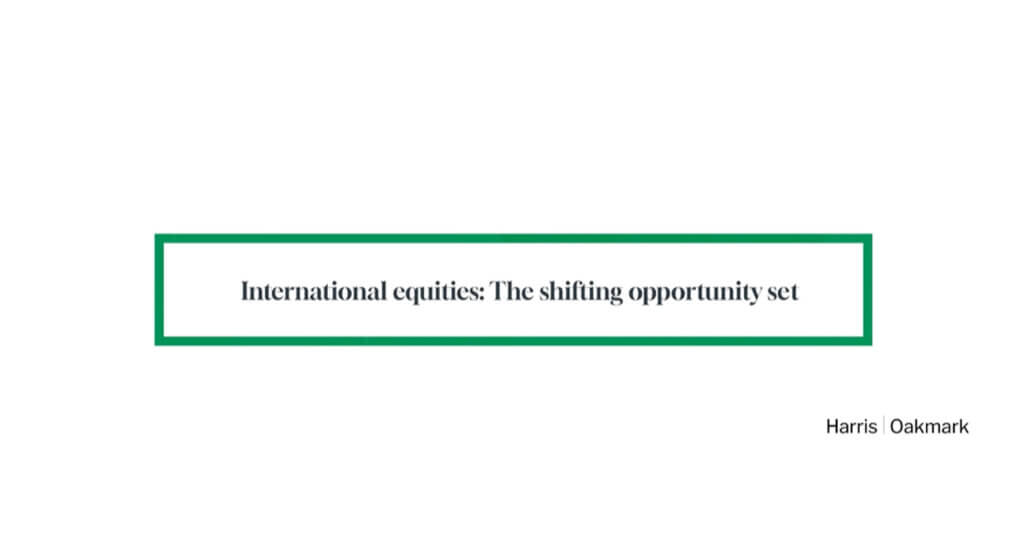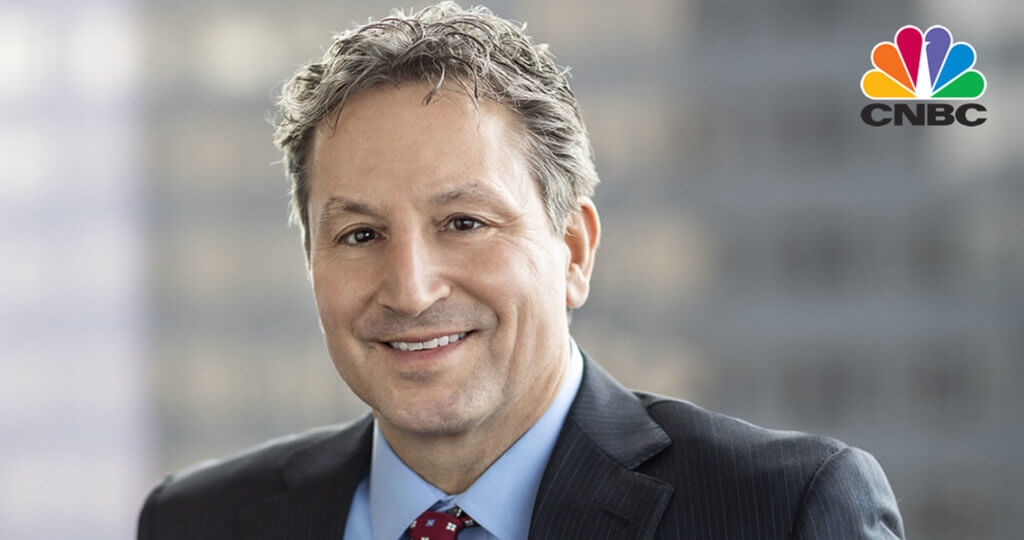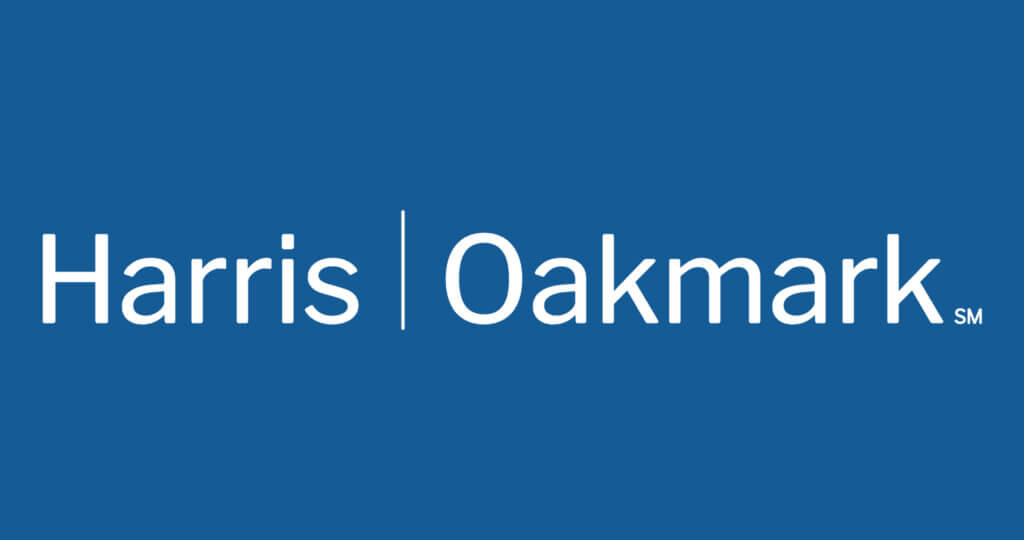Oakmark International Fund – Investor Class
Average Annual Total Returns (06/30/18)
Since Inception (09/30/92) 9.85%
10-year 8.36%
5-year 6.83%
1-year 3.13%
3-month 5.04%
Gross Expense Ratio as of 09/30/17 was 1.00%
Net Expense Ratio as of 09/30/17 was 0.95%
Oakmark International Small Cap Fund – Investor Class
Average Annual Total Returns (06/30/18)
Since Inception (11/01/95) 9.48%
10-year 6.84%
5-year 7.34%
1-year 1.32%
3-month -0.58%
Gross Expense Ratio as of 09/30/17 was 1.36%
Net Expense Ratio as of 09/30/17 was 1.36%
Past performance is no guarantee of future results. The performance data quoted represents past performance. Current performance may be lower or higher than the performance data quoted. The investment return and principal value vary so that an investor’s shares when redeemed may be worth more or less than the original cost. The To obtain the most recent month-end performance data, view it here.
Fellow Shareholders,
This quarter, both international Funds delivered weak results. The Oakmark International Fund lost 5.0% and underperformed its benchmark, whereas the Oakmark International Small Cap Fund dropped 0.6%, though it outperformed its benchmark for the quarter. In fact, after a strong start to 2018, international equity markets have weakened throughout the year based on factors that I will discuss below. Please see the company-specific reports for more details on Fund performances.
The Return of Instability
The VIX Index, a common measure of market instability, spiked dramatically in the month of February. All kinds of macro/geopolitical factors led to this change of environment. Also of note, markets had been unusually quiet for the better part of two years, with the exception of the spike in volatility caused by Brexit in the summer of 2016. Other than that, perhaps, it had been too quiet for too long.
Early in the year, headlines were consumed with news of North Korea testing intercontinental ballistic missiles that could have the capacity to deliver nuclear warheads. As the year progressed, confidence in the economic recovery in Europe came into question as well. Then came political instability in Italy as a result of an election that bore no outright winner, leading, after months of negotiations, to the formation of a government that is a bit EU unfriendly. The rhetoric coming out of the new government’s formation spooked the European markets and the euro, which severely negatively impacted prices of financial service companies with Italian exposure. This hit the Oakmark International Fund particularly hard, as we have stakes in both the Italian bank, Intesa Sanpaolo, and the French bank, BNP, which has a large business in Italy. Additionally, we are overweight in the euro area, and the weakness in the euro currency hurt our performance. Despite the rhetoric out of the politicians in Italy (note: Italy has never been known for political stability with 66 different governments since 1945), we don’t believe the sharp fall in share prices of high-quality financials like Intesa and BNP is at all warranted or matched by a similar decline in business value. As happens often during market instability, an exploitable value gap is created by the fall in “price” that is inconsistent with changes in business value.
Of Trade Disputes, Disagreements and “Wars”
Another factor negatively impacting short-term performance has been the threat by the U.S. to use tariffs and other barriers to correct what is believed by the U.S. to be a global trade system that is biased against the U.S. These threats and, to some degree, actual implementation of tariffs on certain metals have caused retaliation by other countries, thereby triggering a disruption of global trade. I have mentioned in the past and truly believe that the restriction of goods, services and capital from freely moving across sovereign states is detrimental to global economic growth. The purpose of the U.S.’s confrontational approach is to “level the trade playing field” and hopefully this will be the outcome in the end. But if this objective is not reached, or if a global trade war escalates and persists, growth will certainly be negatively impacted and will hurt the earnings of many of the companies in which both Funds are invested.
One of the sectors feeling the brunt of the fall in prices has been the European auto sector. Despite some positive factors, such as recent weakness in the euro and lower Chinese tariffs on cars imported from Europe, the recent threat of tariffs on German cars being exported to the U.S. and Chinese tariff threats for German-badged cars made in the U.S. but exported to China have pummeled the share prices of two of our auto holdings, BMW and Daimler (parent of Mercedes). Additionally, the threat of tariffs on U.S. agriculture products has hurt agriculture equipment maker CNH. Clearly, if tariffs are implemented and stay for the long term, these companies will decline in intrinsic value. However, keep in mind that free trade is not “zero sum,” and it would be difficult to imagine that parties will be unable to find a way to iron out differences, as it will be beneficial to all involved to do so.
Despite all of the geopolitical uncertainty that has hit where we are exposed, I am quite confident that this environment is providing opportunity. It is very difficult to imagine, for example, a country like Italy leaving the eurozone and, thus, the euro currency, given its high level of national debt and what this exit would do to Italy’s interest rates and payments. Though it is possible for a trade war to persist, I feel it is unlikely given that national self-interest of all involved would actually be harmed by this event. As such, we are still quite confident in our business valuations and see opportunity with the decline in international share prices.
We are appreciative of your patience during this volatile period and believe that this is another somewhat typical period of short-term share price weakness. Sadly, share price movements are not always positive! But we will keep looking for opportunities when changes in price do not match changes in value.
The securities mentioned above comprise the following percentages of the Oakmark International Fund’s total net assets as of 06/30/18: Intesa Sanpaolo SpA 3.8%, BNP Paribas SA 4.8%, Bayerische Motoren Werke (BMW) AG 3.8%, Daimler AG 4.5% and CNH Industrial N.V. 2.8%.
The securities mentioned above comprise the following percentages of the Oakmark International Small Cap Fund’s total net assets as 06/30/18: Intesa Sanpaolo SpA 0%, BNP Paribas SA 0%, Bayerische Motoren Werke (BMW) AG 0%, Daimler AG 0% and CNH Industrial N.V. 0%.
Portfolio holdings are subject to change without notice and are not intended as recommendations of individual stocks.
Access the full list of holdings for the Oakmark International Fund as of the most recent quarter-end.
Access the full list of holdings for the Oakmark International Small Cap Fund as of the most recent quarter-end.
The MSCI World ex U.S. Index (Net) is a free float-adjusted, market capitalization-weighted index that is designed to measure the equity market performance of developed markets, excluding the U.S. This benchmark calculates reinvested dividends net of withholding taxes using Luxembourg tax rates. This index is unmanaged and investors cannot invest directly in this index.
The MSCI World ex USA Small Cap Index (Net) is designed to measure performance of small-cap stocks across 22 of 23 Developed Markets (excluding the United States). The index covers approximately 14% of the free float-adjusted market capitalization in each country. This benchmark calculates reinvested dividends net of withholding taxes. This index is unmanaged and investors cannot invest directly in this index.
VIX is the ticker symbol for the CBOE Market Volatility Index. The index is designed to measure the market’s expectation of future volatility based on options of the S&P 500 index. This index is unmanaged and investors cannot invest directly in this index.
The Oakmark International Fund’s portfolio tends to be invested in a relatively small number of stocks. As a result, the appreciation or depreciation of any one security held by the Fund will have a greater impact on the Fund’s net asset value than it would if the Fund invested in a larger number of securities. Although that strategy has the potential to generate attractive returns over time, it also increases the Fund’s volatility.
The stocks of smaller companies often involve more risk than the stocks of larger companies. Stocks of small companies tend to be more volatile and have a smaller public market than stocks of larger companies. Small companies may have a shorter history of operations than larger companies, may not have as great an ability to raise additional capital and may have a less diversified product line, making them more susceptible to market pressure.
Investing in foreign securities presents risks that in some ways may be greater than U.S. investments. Those risks include: currency fluctuation; different regulation, accounting standards, trading practices and levels of available information; generally higher transaction costs; and political risks.
The discussion of the Funds’ investments and investment strategy (including current investment themes, the portfolio managers’ research and investment process, and portfolio characteristics) represents the Funds’ investments and the views of the portfolio managers and Harris Associates L.P., the Funds’ investment adviser, at the time of this letter, and are subject to change without notice.
All information provided is as of 06/30/2018 unless otherwise specified.







